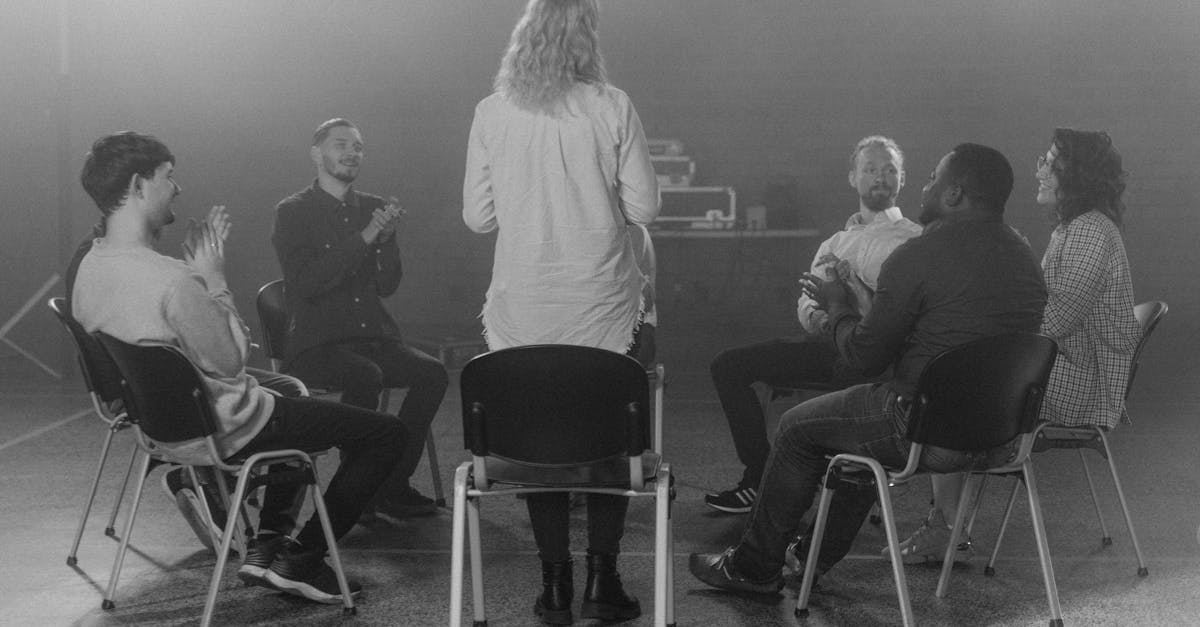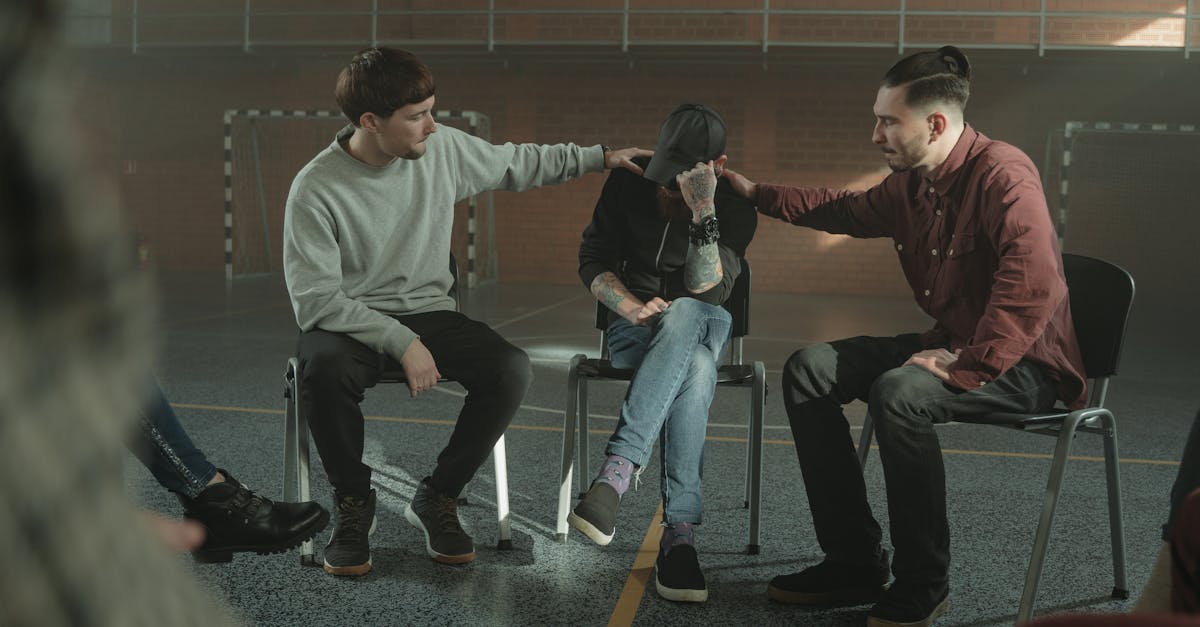
Addressing Specific Mental Health Conditions in Group Therapy
Addressing specific mental health conditions in group therapy offers individuals a supportive environment to share their experiences and learn coping strategies from others facing similar challenges. Depression and anxiety support groups, for instance, provide a safe space for participants to discuss their mental health concerns, receive validation, and explore effective ways to manage symptoms. Group therapy can foster a sense of belonging and reduce feelings of isolation commonly experienced by individuals struggling with these conditions.
Moreover, trauma healing and recovery groups in group therapy can be instrumental in helping individuals process past experiences, develop resilience, and work towards healing. By engaging in structured activities and guided discussions within a group setting, participants can gain valuable insights, enhance their self-awareness, and build a support network. Group therapy sessions focused on addressing specific mental health conditions serve as a powerful tool in promoting emotional well-being and facilitating personal growth among individuals seeking to navigate their unique mental health journeys.
Depression and Anxiety Support Groups
Depression and anxiety support groups are a common form of group therapy that provide individuals with a safe space to share their experiences and struggles with these mental health conditions. Being part of a group of peers who are facing similar challenges can help reduce feelings of isolation and provide a sense of belonging and understanding. In these support groups, participants can offer each other comfort, encouragement, and practical advice on coping strategies for managing symptoms of depression and anxiety.
Group therapy for depression and anxiety often incorporates a combination of structured activities such as group discussions, psychoeducation sessions, and therapeutic exercises aimed at increasing self-awareness and building coping skills. Through the process of sharing and listening to others' experiences, individuals can gain valuable insights into their own thought patterns and behaviours that contribute to their mental health issues. By fostering a sense of community and mutual support, depression and anxiety support groups can empower participants to work towards their recovery goals and enhance their overall well-being.
Nurturing Personal Growth Through Group Therapy
Nurturing personal growth through group therapy can be a transformative experience for individuals seeking self-improvement and increased self-awareness. In these sessions, participants are provided with a supportive environment where they can explore their thoughts, feelings, and behaviours in a safe and confidential setting. Through sharing their experiences and receiving feedback from others, individuals can gain valuable insights into their own patterns and beliefs, leading to personal growth and self-discovery.
Group therapy sessions focused on personal growth often incorporate various therapeutic techniques, such as mindfulness exercises, cognitive-behavioural strategies, and art therapy activities. These approaches aim to help participants develop new coping skills, enhance their emotional intelligence, and foster a deeper understanding of themselves and others. By engaging in these therapeutic practices within a group setting, individuals can receive encouragement and validation from their peers, which can be instrumental in fostering personal growth and building resilience.
Trauma Healing and Recovery Groups
Trauma Healing and Recovery Groups in group therapy provide a safe and supportive environment for individuals who have experienced traumatic events. These groups typically consist of individuals who have gone through similar traumatic experiences, allowing members to connect and share their feelings and struggles. Through group therapy, participants can gain a sense of belonging and validation, which are crucial aspects of healing from trauma. Moreover, being surrounded by others who understand their pain can help individuals feel less isolated and alone in their journey towards recovery.
In group therapy sessions focused on trauma healing and recovery, participants often engage in activities and discussions aimed at processing their emotions and building coping strategies. Facilitated by trained mental health professionals, these groups offer a structured space for individuals to explore their trauma in a supportive setting. By sharing their experiences and listening to others' stories, participants can gain insights into their own healing process and learn from each other's perspectives. The sense of camaraderie and understanding that develops within trauma healing and recovery groups can empower individuals to address their trauma, develop resilience, and move towards a path of healing and recovery.
Emphasizing Social Skills Development in Group Therapy
Group Therapy is a valuable tool for enhancing social skills development in individuals. Through participation in Social Skills Training Groups, individuals can practice communication, conflict resolution, and assertiveness in a structured and supportive environment. These group sessions provide a safe space for participants to receive feedback, improve their interpersonal skills, and gain confidence in interacting with others. Group Therapy offers a unique opportunity for individuals to learn from one another, share experiences, and develop a sense of community.
In addition to improving social skills, Group Therapy can also help individuals build a sense of belonging and connection. Social Skills Training Groups foster a sense of camaraderie among participants, encouraging them to support each other in their personal growth journeys. By engaging in group activities, individuals can learn how to navigate social situations, form healthy relationships, and cultivate empathy and understanding towards others. Ultimately, Group Therapy offers a holistic approach to social skills development by combining education, practice, and peer support in a collaborative setting.
Social Skills Training Groups
Social Skills Training Groups are a valuable form of group therapy that focuses on enhancing individuals' social interactions and communication skills. This type of group therapy is particularly beneficial for those who struggle with social awkwardness, difficulty making friends, or navigating social situations effectively. In a supportive and structured environment, participants can learn and practice essential social skills such as active listening, assertiveness, conflict resolution, and non-verbal communication cues through role-playing exercises and real-life scenarios.
Individuals attending Social Skills Training Groups can expect to develop a greater sense of self-confidence and self-esteem as they progress in their social skills journey. Group members have the opportunity to receive feedback from peers and therapists, allowing for constructive criticism and encouragement to improve their social abilities. Through regular attendance and active participation in group activities, individuals can cultivate meaningful friendships, improve their relationships, and feel more connected to others in their community. This type of group therapy offers a safe space for individuals to learn, grow, and thrive in their social interactions.
FAQS
What are the three main types of group therapy?
The three main types of group therapy are addressing specific mental health conditions, nurturing personal growth, and emphasizing social skills development.
Can you provide examples of group therapy sessions for addressing specific mental health conditions?
Group therapy sessions for addressing specific mental health conditions can include depression and anxiety support groups or trauma healing and recovery groups.
How does group therapy help in nurturing personal growth?
Group therapy helps in nurturing personal growth by providing a supportive environment where individuals can share their experiences, receive feedback, and learn from others facing similar challenges.
What are some examples of group therapy sessions that emphasize social skills development?
Examples of group therapy sessions that emphasize social skills development include social skills training groups where individuals can practice and improve their communication and interpersonal skills in a supportive setting.
Is group therapy effective in treating mental health conditions?
Yes, group therapy has been found to be an effective treatment option for various mental health conditions as it offers a sense of community, support, and shared experiences that can aid in the healing process.


